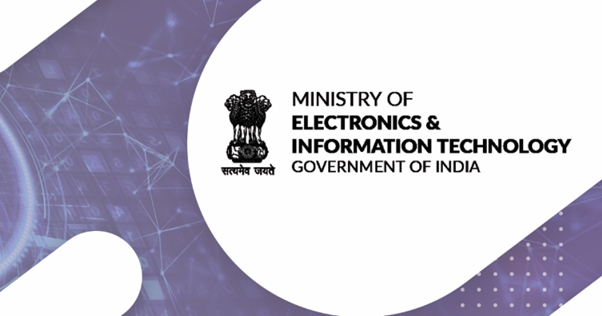The development of AI governance guidelines in India has emerged as a critical necessity due to the rapid advancements in artificial intelligence technologies and their widespread implications on society.

Recognizing the need for a structured approach, the Government of India constituted a multi-stakeholder Advisory Group under the chairmanship of the Principal Scientific Advisor. This group is tasked with creating an ‘AI for India-Specific Regulatory Framework’ to ensure sustainable and ethical AI development. A Subcommittee on ‘AI Governance and Guidelines Development’ was also formed to analyze existing frameworks, identify gaps, and propose actionable recommendations for effective governance.
The Subcommittee’s report emphasizes a coordinated, whole-of-government approach to AI governance, highlighting the importance of compliance and enforcement mechanisms as the AI landscape evolves. The report reflects extensive deliberations and aims to shape future AI governance in India, aligning with global best practices while addressing local needs.
AI Governance Principles
The Subcommittee outlines several key principles for responsible and trustworthy AI (RTAI), which are essential for guiding the development, deployment, and use of AI systems. These principles are aligned with frameworks established by organizations such as NITI Aayog and NASSCOM. The proposed principles include:
1. Transparency: Ensuring that AI systems are accompanied by meaningful information about their processes, capabilities, and limitations.
2. Accountability: Developers must take responsibility for the outcomes of AI systems, with mechanisms in place to clarify accountability.
3. Safety, Reliability & Robustness: AI systems should be developed to minimize risks and ensure consistent performance.
4. Privacy & Security: Compliance with data protection laws is essential to safeguard user privacy.
5. Fairness & Non-discrimination: AI systems should promote inclusivity and avoid biases.
6. Human-centred Values & ‘Do No Harm’: Human oversight is crucial to prevent over-reliance on AI.
7. Inclusive & Sustainable Innovation: Benefits of AI should be equitably distributed.
8. Digital by Design Governance: Leveraging digital technologies for effective governance of AI systems.
These principles serve as a foundation for operationalizing governance in the Indian context.
The Need to Enable Effective Compliance and Enforcement of Existing Laws
As the deployment of AI technologies expands, ensuring compliance with existing laws becomes paramount. The Subcommittee highlights that effective enforcement mechanisms are necessary to uphold public trust and accountability in AI systems.
This includes:
-
- Regular monitoring of AI applications to ensure adherence to legal standards.
- Developing frameworks that facilitate accountability among various stakeholders involved in the AI ecosystem.
- Encouraging self-regulation within industry players to complement government initiatives.
The report stresses that without robust compliance frameworks, the potential risks associated with AI—such as biases, privacy violations, and security threats—could undermine public confidence and hinder innovation.
Cyber Security
Cybersecurity is a critical aspect of AI governance due to the vulnerabilities introduced by interconnected systems. The report underscores the importance of integrating cybersecurity measures into the design and deployment of AI technologies. Key considerations include:
-
- Implementing security-by-design principles to protect against data breaches and unauthorized access.
- Establishing protocols for continuous monitoring and assessment of cybersecurity risks associated with AI systems.
- Promoting collaboration between government agencies and private sectors to enhance resilience against cyber threats.
By prioritizing cybersecurity within the governance framework, stakeholders can mitigate risks while fostering trust in AI applications.
Intellectual Property Rights
Intellectual property (IP) rights pose unique challenges in the context of AI development. The report emphasizes the need for clear guidelines on IP ownership, especially concerning generative AI models that create new content. Recommendations include:
-
- Developing policies that clarify IP rights related to AI-generated outputs.
- Encouraging innovation while protecting creators’ rights through balanced IP frameworks.
- Promoting collaboration between industries to address IP challenges collectively.
Establishing a robust IP regime will not only protect inventors but also stimulate further innovation in the AI sector.
Recommendations
Based on its findings, the Subcommittee provides several recommendations aimed at fostering responsible AI governance:
1. Establish a Comprehensive Regulatory Framework: Develop an overarching framework that integrates existing laws with new guidelines specific to AI technologies.
2. Promote Multi-Stakeholder Engagement: Encourage collaboration among government bodies, industry players, academia, and civil society to create inclusive governance structures.
3. Invest in Capacity Building: Enhance skills and knowledge related to AI governance among stakeholders through training programs and workshops.
4. Leverage Technology for Compliance: Utilize technology solutions—such as blockchain—to enhance transparency and traceability in compliance efforts.
5. Regular Review Mechanisms: Implement periodic reviews of governance frameworks to adapt to technological advancements and emerging challenges.
By adopting these recommendations, India can create a robust governance ecosystem that supports innovation while safeguarding public interests.
Conclusion
As India embarks on its journey towards becoming a leader in artificial intelligence, establishing effective governance mechanisms is essential for navigating the complexities associated with this transformative technology. The collaborative efforts outlined in the Subcommittee’s report aim not only to enhance trustworthiness but also to foster an environment conducive to sustainable growth in India’s burgeoning AI landscape.
Spread the Word



